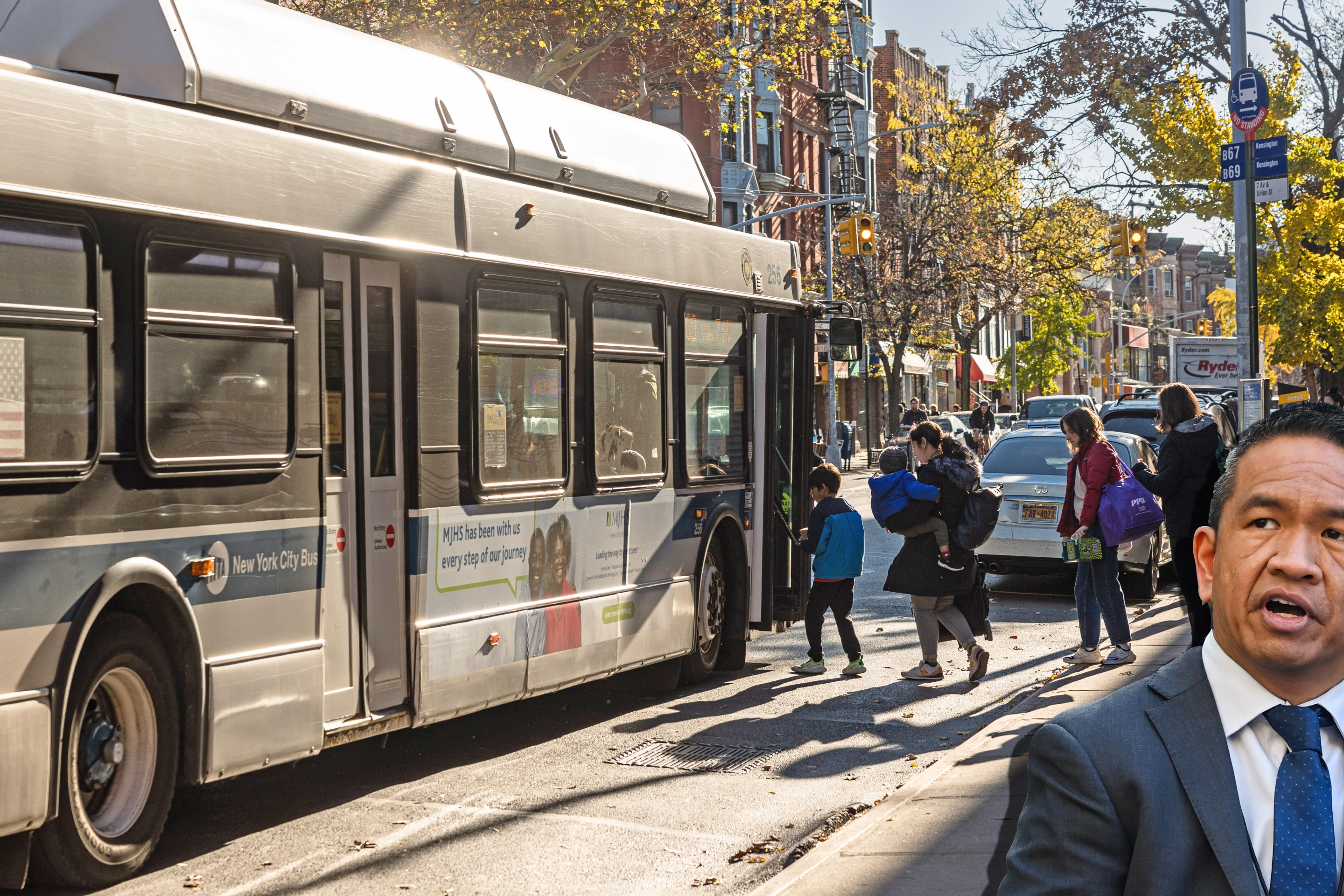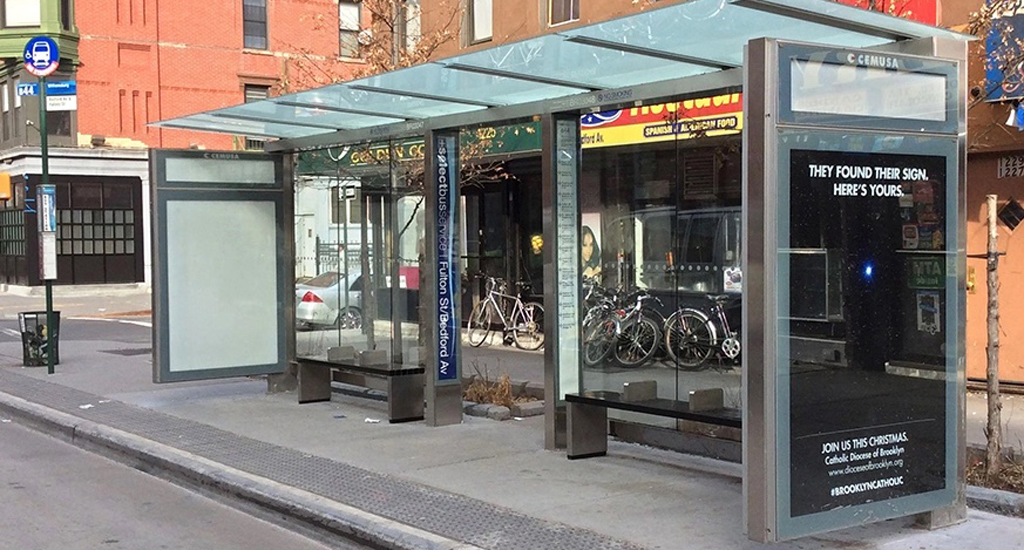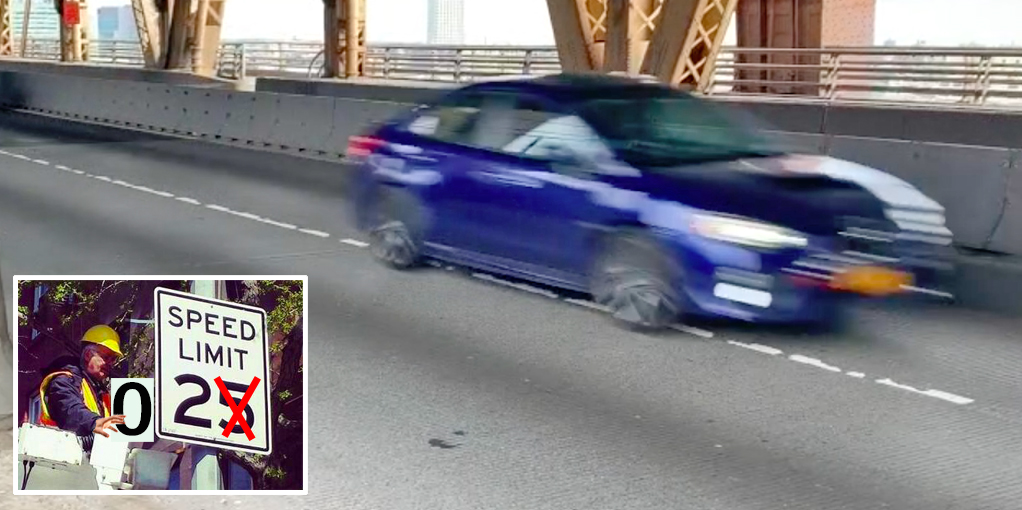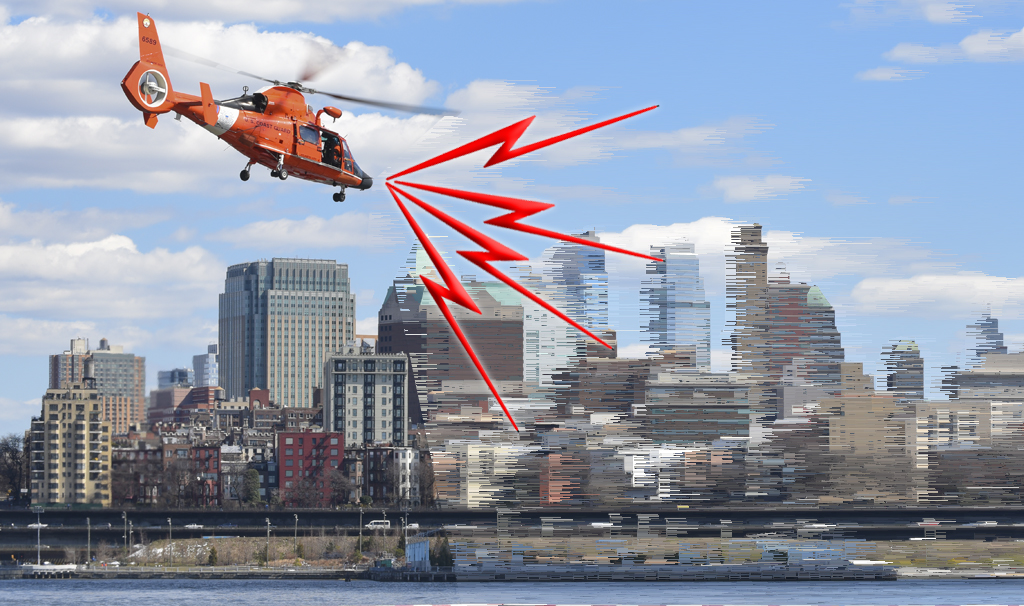Includes Provision That Would Allow NYC Hybrid Taxi Fleet
Flanked by fellow Democrats, members of the military, and a crowd hoisting signs with buzzwords like "clean energy" and "green jobs," Sens. Barbara Boxer (D-CA) and John Kerry (D-MA) today released the first draft of their legislation to curb U.S. emissions and combat climate change.
The bill (available here) contains a stronger target for pollution reduction -- a 20 percent decrease below 2005 emissions levels by the year 2020 -- than the House climate measure which passed by a razor-thin margin in June.
But environmental groups are already lamenting that scientific consensus has urged a 40 percent pollution reduction below 1990 emissions levels in order to effectively forestall the negative effects of climate change, making the Boxer-Kerry bill "woefully inadequate," in the words of Center for Biological Diversity executive director Kieran Suckling.
And the Senate bill's transportation provisions, as Streetsblog Capitol Hill reported yesterday, offer only a marginal improvement over the House version, which gave transit and other clean transport just 1 percent of the proceeds from any cap-and-trade carbon regulation system.
The Senate bill's section on allocations -- the amount of aid provided to state governments and various industries to help meet emissions-reduction goals -- is subject to change as the environment committee, which Boxer chairs, and other panels attempt to amend the legislation.
As it stands, however, the Senate would require states to use 10 percent of their allocations to reduce transportation-based emissions. The House climate bill, by contrast, allowed states to use up to 10 percent of allocations on transportation but did not make it mandatory.
Boxer and Kerry's draft also includes a "set-aside," in Washington parlance, for transit grants to help states and metropolitan planning organizations (MPOs) meet national standards for cutting transport-based emissions.
Those transit grants, distributed according to existing federal formulas, would be funded by auctioning a still-undetermined amount of emissions allocations and depositing the proceeds in state Climate Change Response and Transportation Funds (CCRTFs). After 10 percent of CCRTF funds went to coastal states, to help cope with the risk of climate-induced floods, and 1 percent went to Indian tribes, 50 percent of the rest would go toward transit.
Electric vehicles, including electrified transit, fares better under the Senate bill. The Department of Energy would have full control over a still-undetermined share of allocation auction proceeds, with the dual mission of establishing reliable infrastructure to fuel electric vehicles and developing "a national transportation low-emissions energy plan."
Also noted yesterday: The Senate climate draft features a provision that
allows states to set higher fuel-efficiency rules for taxicabs than the
national standard, which will hit an average of 35.5 miles per gallon
in 2016. The taxis language would allow New York City, represented by
environment committee member Sen. Kirsten Gillibrand, to press on
with plans, derailed in federal court, to transition to an all-hybrid taxi fleet. Rep. Jerrold Nadler has introduced a companion taxi bill in the House.
Meanwhile, transportation reform groups are already strategizing about how to increase the bill's focus on their area -- which currently accounts for one-third of U.S. emissions but stands to receive far less than the 10 percent of total climate revenue that is mandated in the so-called "CLEAN TEA" legislation.
The fate of transit and other clean transport may rest with Sen. Tom Carper (D-DE), the upper chamber's lead sponsor of "CLEAN TEA." Carper, who was not present at today's Boxer-Kerry press conference, released a statement that notably withheld an endorsement of the current climate bill:
Senators Kerry and Boxer have worked hard to produce the bill they released today and I congratulate them for their efforts so far. It is now time for the Senate committees to get to work examining the bill's provisions and considering any changes necessary. ... I expect there wil be some important changes made as this effort advances and we build consensus around how to address this vitally important global energy and climate challenge.
Few on the Hill expect the Senate to be able to meet its initial goal of voting on a final climate bill before United Nations climate change talks begin in December in Copenhagen. Still, Senate passage next spring remains a distinct possibility -- which makes the Boxer-Kerry bill's relative alignment with the House version one of its biggest political selling points.
As one of the House climate bill's lead sponsors, Rep. Ed Markey (D-MA), put it: “Given the Senate draft’s structural similarity
to the House-passed Waxman-Markey bill, a legislative solution that can
pass both chambers of Congress is finally within sight."
The question is, how much of a solution will the final product turn out to be?





